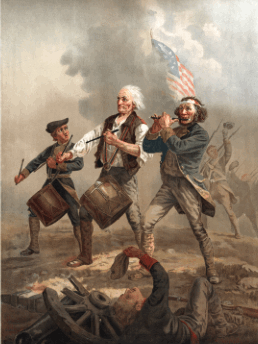 Mark Twain said, "The only difference between a tax man and a taxidermist is that the taxidermist leaves the skin." That's the way many small business owners feel nowadays, with proposed increases in taxes, along with mandates and increases in health insurance. Just the other day, one business owner reminded me of the Will Rogers quote, "The difference between death and taxes is death doesn't get worse every time Congress meets."
Mark Twain said, "The only difference between a tax man and a taxidermist is that the taxidermist leaves the skin." That's the way many small business owners feel nowadays, with proposed increases in taxes, along with mandates and increases in health insurance. Just the other day, one business owner reminded me of the Will Rogers quote, "The difference between death and taxes is death doesn't get worse every time Congress meets."
In the midst of the tax and health care "reforms" and the economic situation, I received an article earlier this week containing a survey reporting 70% of employed Americans are afraid of losing their jobs. So, it is important during times such as these that we not only draw upon humor from great wits like Mark Twain and Will Rogers, but also draw from such quotes as Thomas Edison's, "Our greatest weakness lies in giving up. The most certain way to succeed is always try just one more time." Reminds me of the story of George Washington Carver...
I vividly recall reading Carver's biography in one of those orange, hardcover books available in our elementary school library. (I wrote a column several years ago about how much I enjoyed and benefitted from this great series of children's books.) Carver grew up at the close of the Civil War in a one-room shanty on the property of Moses Carver, the man who owned Carver's mother. He and his mother were abducted from Moses Carver and sold to new owners. The boy was later found and returned to Moses Carver, but his mother was never seen again.
Rising from slavery, George Washington Carver became one of the 20th century's greatest scientists, and his influence is still being felt today. He devoted his life to understanding nature and the many uses for plants. He is best known for developing crop-rotation methods for conserving nutrients in soil and discovering hundreds of new uses for crops such as the peanut and the sweet potato. His work and the manner in which he lived his life led to his becoming one of the most respected people in U.S. history.
However, in the beginning of his work, after he recommended farmers should plant peanuts and sweet potatoes instead of cotton, he suffered his greatest trials. The farmers lost even more money than they were losing with cotton due to the lack of a large market for peanuts and sweet potatoes. Carver cried out to God, "Mr. Creator, why did you even make the peanut?" Many years later, he shared that God led him back to his lab and worked with him to discover some 300 marketable products from the peanut. Likewise, he made over 100 discoveries from the sweet potato. These new products created a big demand for peanuts and sweet potatoes, and they were major contributors to rejuvenating the Southern economy.
Carver arose early each morning to walk alone and pray. He asked God how he was to spend his day and what God wanted to teach him that day. As he progressed and developed the many products that benefitted mankind and won him renown, he also turned down many offers - such as a six-figure income opportunity from Henry Ford. He felt he was doing what God wanted him to do and doing the thing that would most benefit the people of America and the world. George Washington Carver was the epitome of someone who lived by the quote later uttered by Edison, "...always try just one more time."
______________
About our guest Blogger:
© Carl Mays, father of ClaimCare CEO Carl Mays II, is an author and speaker at over 3,500 events. Contact Carl at carlmays@carlmays.com or 865-436-7478. His motivational speaking and book information can be found on http://www.carlmays.com/. The Student Mentoring site MyMerlin.Net for students and others is based on his book and program, "A Strategy For Winning."

 Former University of Florida quarterback Tim Tebow became a hot discussion topic when Denver Broncos coach Josh McDaniels selected him in the NFL draft. Many of the comments have been of a very sarcastic, critical nature, such as one sportswriter demanding, "Fire Josh McDaniels for drafting a team chaplain in the first round." Only time will reveal the outcome of the selection, but the entire situation led me to think about hearing the late Dallas Cowboys coach Tom Landry say, "We're looking for character, not characters."
Former University of Florida quarterback Tim Tebow became a hot discussion topic when Denver Broncos coach Josh McDaniels selected him in the NFL draft. Many of the comments have been of a very sarcastic, critical nature, such as one sportswriter demanding, "Fire Josh McDaniels for drafting a team chaplain in the first round." Only time will reveal the outcome of the selection, but the entire situation led me to think about hearing the late Dallas Cowboys coach Tom Landry say, "We're looking for character, not characters." 

 On the occasions when I tell Jean something such as, "I'm going to the post office, drop by the pharmacy, then on to the bank, and I may swing by the hardware store on the way back," she often replies with something like, " Well, maybe I'll see you again today." She knows when I "go out" there is no telling how many people I will run into and strike up a conversation with - and just how long I may be gone - unless I have a definite time by which I must return.
On the occasions when I tell Jean something such as, "I'm going to the post office, drop by the pharmacy, then on to the bank, and I may swing by the hardware store on the way back," she often replies with something like, " Well, maybe I'll see you again today." She knows when I "go out" there is no telling how many people I will run into and strike up a conversation with - and just how long I may be gone - unless I have a definite time by which I must return.  When this true story appeared in a Florida newspaper and was sent to me a few weeks ago, I filed it away and said, "This is definitely something I must share with my readers."
When this true story appeared in a Florida newspaper and was sent to me a few weeks ago, I filed it away and said, "This is definitely something I must share with my readers."  Are you average? Could it be you are above average? Or, is it possible you are in a category labeled as below average? Now, before you think too seriously about responding to these questions, you need to ask in return, "Am I average, above average or below average in WHAT? Ahhh... therein lies the important question.
Are you average? Could it be you are above average? Or, is it possible you are in a category labeled as below average? Now, before you think too seriously about responding to these questions, you need to ask in return, "Am I average, above average or below average in WHAT? Ahhh... therein lies the important question.  Like many of you, I am continuing to discover that more and more business is being conducted over the Internet and, specifically, by way of e-mail. When I first began speaking professionally, I never imagined I would ever book engagements without communicating with the meeting planner on the telephone and through traditional mail. Along came the popularity of the fax, which changed procedures somewhat, but nothing like the changes instigated by the Internet explosion about 10 years ago that began noticeably affecting the manner in which my speaking engagements were booked and continues to become more common.
Like many of you, I am continuing to discover that more and more business is being conducted over the Internet and, specifically, by way of e-mail. When I first began speaking professionally, I never imagined I would ever book engagements without communicating with the meeting planner on the telephone and through traditional mail. Along came the popularity of the fax, which changed procedures somewhat, but nothing like the changes instigated by the Internet explosion about 10 years ago that began noticeably affecting the manner in which my speaking engagements were booked and continues to become more common.
 Since I refer to Dale Evans Rogers in today's column, I guess I had better mention for my younger readers that she was once widely-known as "Queen of the Cowgirls" and teamed up with "King of the Cowboys" Roy Rogers to entertain many kids, including me, with movies and television shows. After hanging up her spurs, she became a much-in-demand inspirational speaker and writer. She passed away at the age of 88 in 2001, preceded in death by her husband Roy in 1998.
Since I refer to Dale Evans Rogers in today's column, I guess I had better mention for my younger readers that she was once widely-known as "Queen of the Cowgirls" and teamed up with "King of the Cowboys" Roy Rogers to entertain many kids, including me, with movies and television shows. After hanging up her spurs, she became a much-in-demand inspirational speaker and writer. She passed away at the age of 88 in 2001, preceded in death by her husband Roy in 1998.
 During the American Revolutionary War, Thomas Paine presented his case for independence from England in a pamphlet titled Common Sense. He also wrote a series of essays collectively titled The Crisis. Many of us are familiar with the opening sentence of the initial essay of December 23, 1776: "These are the times that try men's souls." With these words he began his ongoing support for an independent and self-governing America through the war's many crises. General George Washington found the essay so inspiring he ordered it read to the troops at Valley Forge.
During the American Revolutionary War, Thomas Paine presented his case for independence from England in a pamphlet titled Common Sense. He also wrote a series of essays collectively titled The Crisis. Many of us are familiar with the opening sentence of the initial essay of December 23, 1776: "These are the times that try men's souls." With these words he began his ongoing support for an independent and self-governing America through the war's many crises. General George Washington found the essay so inspiring he ordered it read to the troops at Valley Forge.